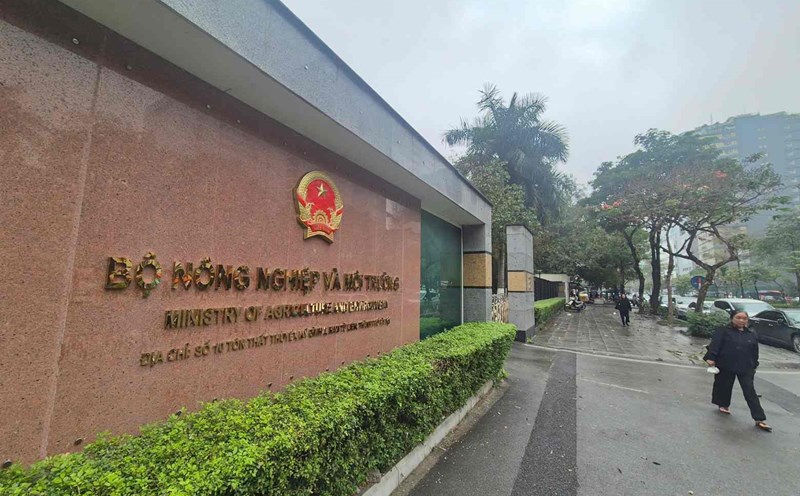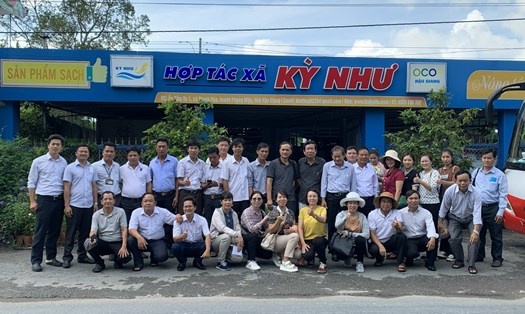At the conference, Mr. Le Quoc Thanh - Director of the National Agricultural Extension Center (KNQG) - said that the Ministry of Agriculture and Rural Development has decided to transfer the Agricultural and Rural Coordination Office of the Mekong Delta, under the Department of Economic Cooperation and Rural Development, to the KNQG Center in April 2025.
The KNQG Center has coordinated with the Department of Economic Cooperation and Rural Development to hand over and receive the Agricultural and Rural Coordination Office of the Mekong Delta.
The Ministry also decided to complete the Steering Committee for Agricultural and Rural Development in the Mekong Delta and appoint Ms. Huynh Kim Dinh - Deputy Director of the Department of Economic Cooperation and Rural Development - to hold the position of Deputy Director of the KNQG Center.
The Director of the KNQG Center informed: From now until the end of the year, agricultural extension activities and community agricultural incentives will be evaluated in the implementation of the Project of 1 million hectares of high-quality, low-emission rice and the operation of the agricultural extension system in the 2-level local government model.
Mr. Thanh emphasized that one of the important tasks is to build an identification set and logo for the 1 million ha Project. At the same time, organize training courses to encourage agriculture in the Mekong Delta on the technical process of high-quality, low-emission rice cultivation associated with consumption linkage, contributing to the effective implementation of the Project; Linking markets and developing the seafood value chain, supporting the building of sustainable linkages between people and businesses; circular economy, organic production...
Speaking at the ceremony, Ms. Huynh Kim Dinh - Deputy Director of the KNQG Center - said that in the new period, the agricultural extension system needs to be strongly innovated to adapt to increasingly high requirements from practice, especially in the trend of developing ecological agriculture, smart rural areas, green transformation and circular economy. Agricultural promotion is not only a channel for technical transfer and policy communication, but also must become a core of knowledge, leading innovation, effectively connecting farmers, scientists, businesses and the market.
According to Ms. Dinh, the new situation with a streamlined, effective and efficient two-level local government organization structure puts the new role and task for the agricultural extension system. That is the role of a central center for coordination on central - local specialized databases; communication, assessment and recommendation of policies, forecasts...











